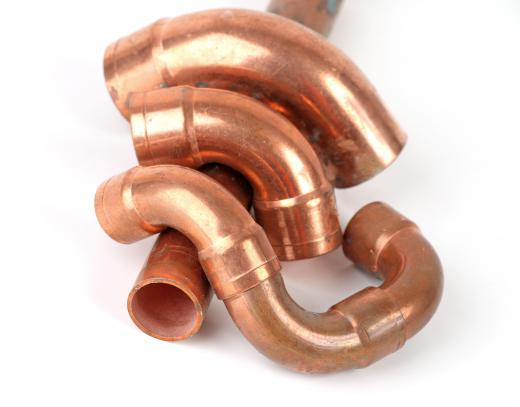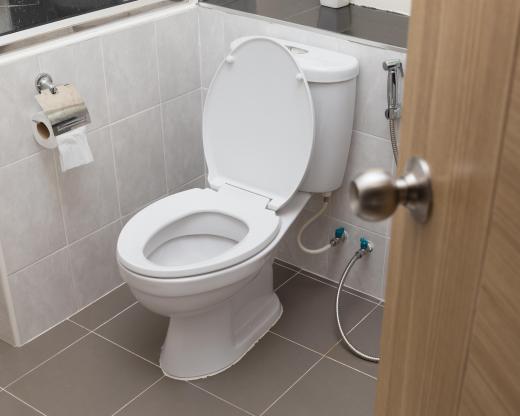A waste pipe is a pipe which is designed to carry away liquid waste, with the exception of sewage, which is handled by different plumbing for reasons of environmental health. In homes, waste pipes drain washers, sinks, dishwashers, and other plumbed fixtures. In other facilities, waste pipes can handle a wide variety of liquid waste, again with the exception of sewage. Sewage is a special subset of liquid waste which needs to be handled with care because it can contain microorganisms which may cause disease.
A wide variety of materials can be used to make waste pipes. Historically, wood was used, and in some communities, examples of wooden waste pipes can still be seen, particularly bamboo pipes in parts of China and Japan. As people grew more adept at metalworking, materials like lead and copper began to be used, while today plumbers tend to prefer plastics. Plastics are cheap, easy to work with, and very easy to bend or join with elbows so that they can fit into snug spaces.

The waste pipe may be rigid or flexible, depending on how it is used; flexible waste pipes are sometimes used, for example, to drain washing machines into large sinks, allowing people to plumb in washers without having to make substantial changes to the plumbing. The same technique is also used sometimes for dishwashers, with connections to the sink for fresh water and a flexible pipe placed in the sink to drain water when the dishwasher is in operation.

If a waste pipe is going to be used to handle waste which could be contaminated with chemicals, as might be seen in a facility like a photo lab, it may need to drain to separate holding containers for safety. This is designed to keep dangerous chemicals out of wastewater treatment plants, with companies which specialize in that kind of waste collecting it and processing it. Likewise, a toilet waste pipe is also treated differently from waste pipes attached to other plumbing fixtures.

Typically, a waste pipe is designed to drain to a larger pipe which collects wastewater for treatment. The water is run through a wastewater treatment plant to pull out impurities before being released. Cleaned wastewater may be discharged in the natural environment, used for landscaping, or reused in industrial processes where absolutely clean water is not necessarily required. Some industrial facilities even have their own treatment plants to process wastewater.
Ever since she began contributing to the site several years ago, Mary has embraced the exciting challenge of being a About Mechanics researcher and writer. Mary has a liberal arts degree from Goddard College and spends her free time reading, cooking, and exploring the great outdoors.

